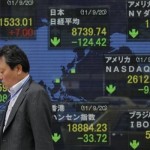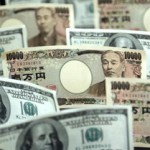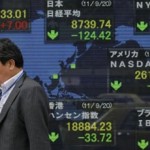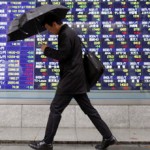Citi Sees Yen at 95 Per Dollar as Intervention Fears Recede
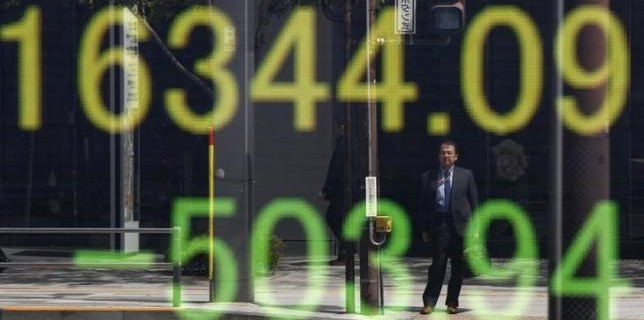
-
Yen strengthened beyond 100 last week for second time in 2016
-
‘There’s not a great deal of fear’ of intervention, Elmer says
The yen will probably climb to a three-year high of 95 over the next month as Japan may not be able to rally support from its global peers to curb its appreciation, according to Citigroup Inc., the world’s largest foreign-exchange trader.
The Japanese currency is the developed world’s best performer against the dollar this year, surging almost 20 percent amid risks to global growth ranging from the future of the European Union to uneven data in the U.S. The yen has also partly reversed four years of losses as investors doubt Japan’s ability to spur consumer price increases and revive the world’s third-biggest economy through a weaker currency.
“There is some skepticism that they are going to mount an even stronger defense against yen appreciation,” Todd Elmer, Citigroup’s head of G-10 foreign-exchange strategy for Asia ex-Japan, said in an interview in Singapore on Friday. “International authorities aren’t going to be seeing any signs that a stronger yen is destabilizing other markets. If anything, since the spring, there does seem to be some degree of agreement among international authorities that a somewhat weaker dollar is a better outcome for global markets.”
The yen strengthened beyond the 100 per dollar mark for the second time this year last week and tested remaining higher than that level twice more. A measure of the greenback held near a three-month low as Federal Reserve minutes showed officials were divided over the urgency of raising interest rates. Japan’s Vice Finance Minister for International Affairs Masatsugu Asakawa said last week that the government will act appropriately if there are excessive currency moves and that it’s in close contact with other Group-of-Seven nations. The yen was at 100.69 as of 9:50 a.m. in Tokyo Monday. It last reached 95 in June 2013.
Japan intervened in currency markets three times in 2011 in an effort to halt gains that drove the exchange rate to a peak of 75.35 per dollar. The yen still ended 2011 as the best performer among developed-nation currencies.

A gauge of global exchange-rate volatility has declined since the result of the U.K. vote to exit the European Union was announced on June 24. This quarter, all currencies of G-7 nations have advanced against the dollar except for the pound. World stock markets have gained $6.25 trillion in value since a selloff following the U.K. vote. Japanese shares have also been less vulnerable to a stronger yen, with the Nikkei 225 Stock Average index up 11 percent since June 24.
Dollar Drivers
A weak dollar has “been associated with stronger asset prices, less volatility, and I don’t think that pattern is going to change anytime soon,” Elmer said.
The yen will probably reach 95 before the Bank of Japan meets on Sept. 21 unless investors are convinced the authorities will move beyond the policy steps that have been unveiled so far, he said.
The BOJ last month disappointed investors by leaving two key policy tools — bond purchases and negative interest rates — unchanged. That sentiment was compounded after details of a 28 trillion yen ($278 billion) fiscal spending package released on Aug. 2 failed to ignite optimism that Japanese Prime Minister Shinzo Abe can boost growth.
“To me the path of least resistance is lower for dollar-yen,” Elmer said. “There’s not a great deal of fear in the market for intervention.”
Source: Bloomberg









